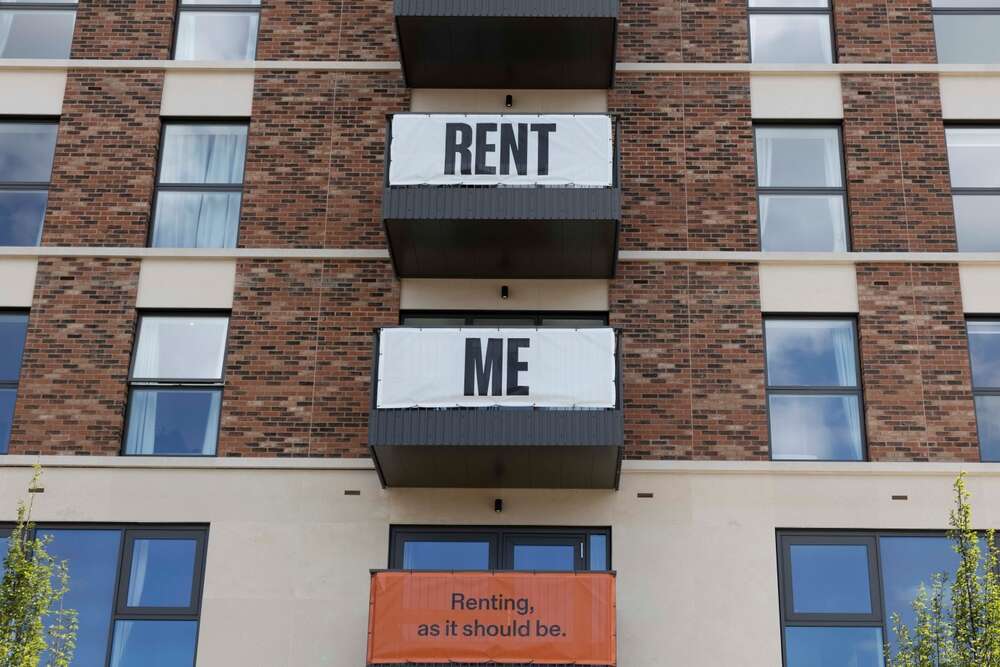
The UK is suffering economically. The post-pandemic era has been punctuated by multiple shocks that were accelerated by the brief yet long-reverberating tumult of the Liz Truss premiership – with effects reaching as far as supermarket staples and rent prices.

The cost-of-living crisis has hammered private renters with rate increases that are in many cases above inflation – particularly in London. In fact, as City Monitor has previously reported, there is now no postcode in the greater London region where an average single room costs less than £700, and in many regions closer to central London, the reality is closer to £900 or £1000.
Unsurprisingly then, the question remains for many private renters: ‘Will my rent ever go down?’.
Why have rent prices increased so much?
Rent prices are just one element in a complex housing market. The price that a tenant can expect to pay is dependent on the demand and supply of houses, the desirability of the area and, crucially for the current crisis, the costs for the landlord.
Like homeowners, landlords with mortgages on their rented properties are subject to changes in interest rates. If they are on a variable rate or their fixed rate is ending, interest rises will mean higher payments for landlords that will almost inevitably pass down to tenants.
Other landlords are selling their stakes in the housing market, reducing the supply of rented accommodation as prospective homeowners buy the properties.
To put this into context, private rents in London increased at a record annual rate of 5.9% in August 2023. This is the highest annual increase since the ONS began recording in 2006 and, far from an anomaly, this marks the 20th consecutive month that the figure is greater than the previous month.
Will rents ever go down?
While average rents have been increasing consistently, some of the conditions that influence them appear to be easing. In September 2023, inflation fell from 6.8% to 6.7% – a far cry from its peak of 11.1% in October 2022 – as Bank of England interest rates stood firm at 5.25% despite predictions of a 15th consecutive increase.
While these measurements have a relationship with rent prices, their easing is not necessarily an indication that rent is likely to fall any time soon.
For one, both rent and mortgages still have room to rise as fixed-rate terms end over the coming months and years. But as Anthony Breach, senior analyst at Centre for Cities, notes, there is one key factor holding up rents in defiance of the wider economy.
Breach told City Monitor: “Rents are unlikely to fall without a greater supply of new homes, so the best that renters can currently hope for is wage growth to match the increases they are seeing.
“Government needs to address the short supply of homes to rent with planning reforms that make the process of building homes and infrastructure more certain while limiting delays and bottlenecks.”
Centre for Cities calculates in its housebuilding crisis report that there is a shortfall of 4.3 million homes in the UK, or 15% of the country’s current total of 28.3 million dwellings, compared with housebuilding rates of other Western countries.
At the current housebuilding target of 300,000 per year, it would take around 50 years to clear the backlog.
According to Breach, at current housebuilding levels, “the levers that government can pull are capable of alleviating some of the pressure on renters, but only at the expense of first-time buyers.”
Centre for Cities argues that flexible planning reform is necessary if there is to be any lasting change for private renters since housing is at an unsustainable cost with current housebuilding levels only reaching the minimum to sustain current standards.
[Read more: Wrap it up and start again: The future of London’s housing]






